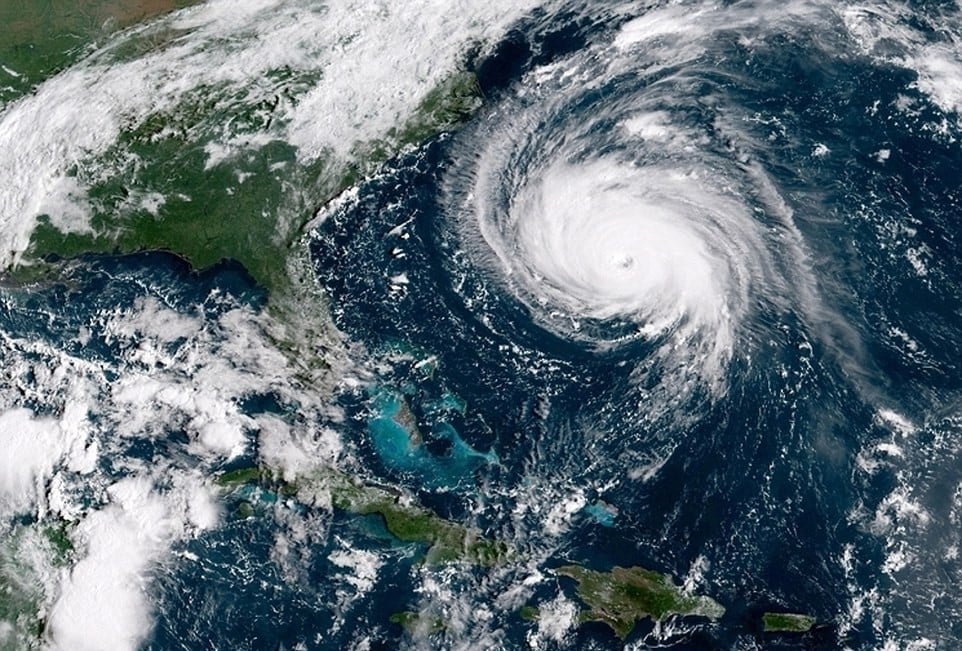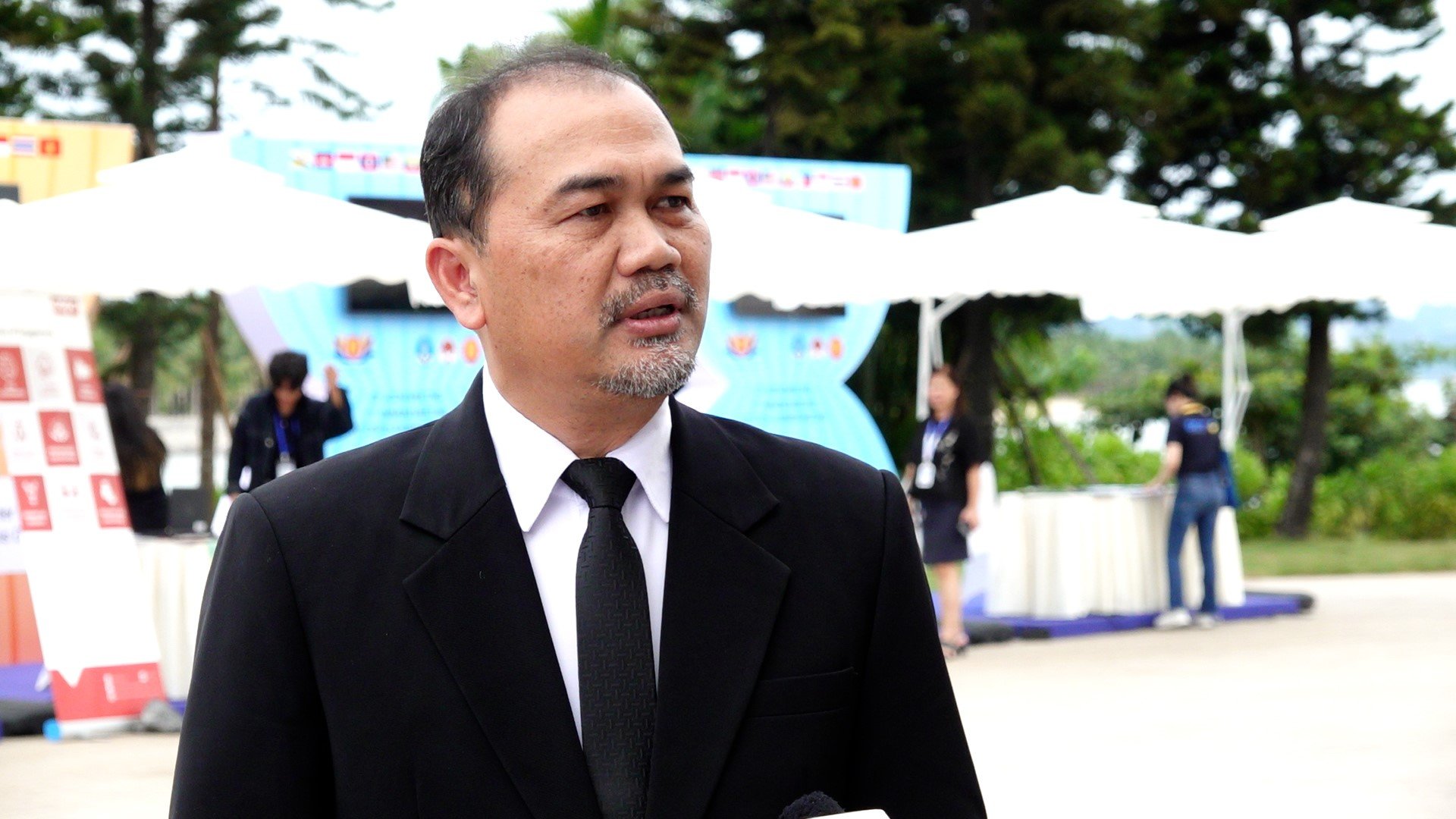May 30, 2025 | 00:52 GMT +7
May 30, 2025 | 00:52 GMT +7
Hotline: 0913.378.918
May 30, 2025 | 00:52 GMT +7
Hotline: 0913.378.918

Mr. Steven Goldfinch, a Disaster Risk Management Specialist at ADB. Photo: Quang Dung.
On the sidelines of a series of events involving ASEAN cooperation in disaster management in Ha Long city, Mr. Steven Goldfinch, a Disaster Risk Management Specialist at the Asian Development Bank (ADB), shared that an adequate technical support platform must be provided to help ASEAN strengthen its resilience to cross-border natural disasters.
According to Mr. Goldfinch, the technical platform is based on three pillars. These are: strengthening regional cooperation on understanding cross-border risks; introducing high-level technology serving regional cooperation on cross-border risks; and inter-regional cooperation through improving capacity and exchanging knowledge.
Regarding the component of strengthening cooperation, the ADB’s specialist pointed out that the risk of cross-border tropical storms is expected to increase in the future. However, the increase in risk level is not uniform, with the Philippines suffering the highest overall damage and Vietnam and Cambodia experiencing the most significant increase in risk level.
"By 2050, tropical storms can cause damage to 182,000 houses in Cambodia, the Philippines, and Vietnam, a 60% increase compared to the current annual damage to houses," said Mr. Goldfinch.
In the disaster risk assessment scenario, the ADB representative also paid attention to the issue of drought. Accordingly, Cambodia is expected to be most severely affected by the increased risk of drought in the three countries in the study, namely Vietnam, Cambodia, and the Philippines. Crop production will be affected. Specifically, 89% of Cambodia's arable land will be affected.
To manage and provide early warnings for natural disasters, Mr. Goldfinch called for the development of a national standard framework for assessing risks, impacts, and vulnerabilities due to drought. At the same time, in addition to establishing inter-sectoral working groups, countries should have a plan to switch from early warning to warning about the impacts of natural disasters.

A storm is seen from the satellite. Photo: EPA.
Recently, ADB sponsored USD 1.3 million via technical support for ASEAN to promote disaster risk management. On that basis, ADB coordinated the implementation of the ADINet 3.0 system, with disaster database storage functions and the document store with functions of searching, warning, supplying RSS data, and social media integration.
It is expected that in October 2023, ADB will perfect this system and guide relevant organizations in ASEAN. Training activities on ADINet 3.0 will be implemented in November.
"Cross-border disaster risks are a major challenge for ASEAN. The region's response to this challenge will shape the region's future resilience," Mr. Goldfinch emphasized.
Sharing this viewpoint, Mr. Markus Werne, Head of the Regional Office for Asia and the Pacific of OCHA (United Nations Office for the Coordination of Humanitarian Affairs), said that the United Nations has registered five priority programs for ASEAN, focusing on strengthening cooperation between the two sides in designing and implementing intervention measures.
In addition, Mr. Werne recommended that ASEAN have sustainable and resilient recovery plans for areas regularly affected by natural disasters. One of the plans was initiated by the United Nations Development Programme (UNDP) through the joint program on “Preparing for Response and Recovery to El Niño-related Risks”.
As one of the heaviest cross-border impacts, El Nino can cause tropical storms to become stronger, temperatures to become extreme, and droughts to happen frequently. In the period 2015–2016, it was estimated that 60 million people globally were affected by El Nino.
From this analysis, UNDP proposes to prepare for recoveries at the regional and national levels and recommends that the ASEAN Secretariat strengthen preparation and response work and develop a separate recovery strategy for areas affected by El Nino. Besides, the AHA Centre needs to be ready to respond and consult on early actions at the regional level.

Mr. Muhd Harrith Rashidi Bin spoke in an interview with the Vietnam Agriculture Newspaper. Photo: Quang Dung.
As Chairman of the ASEAN Committee on Disaster Management (ACDM) in 2024, Brunei in particular and ASEAN in general have made many preparations to respond to cross-border disaster risks.
Mr. Muhd Harrith Rashidi Bin Haji Muhd Jarmin, Director of Brunei's National Disaster Management Centre, said that ACDM has gone through a long journey and has accumulated a lot of experience in responding to natural disasters and climate change.
"I believe that, in the coming period, countries in the ASEAN region, under the leadership of ACDM, will make efforts to minimize the impacts of natural disasters, especially in the context of complicated climate change development," said Mr. Muhd Harrith Rashidi.
Affirming that it will continue to deploy the efforts and initiatives that Vietnam has launched in 2023, Brunei promised to implement commitments in the ASEAN Agreement on Disaster Management and Emergency Response (AADMER) and, at the same time, called on ASEAN member states to actively participate in implementing the contents of the agreement.
Translated by Huyen Vu Thu

(VAN) Ms. Nguyen Thi Dung, Deputy Director of Ngoc Hoang Cooperative, shared about the journey of bringing dragon fruit to Europe, achieving annual revenues in the billions of VND.

(VAN) Bamboo products from Thang Tho Bamboo Cooperative have reached many countries around the world, while also creating jobs for local workers.

(VAN) The Management Board of Con Dao National Park reported that a green sea turtle, tagged in the Philippines, has traveled thousands of kilometers to lay 84 eggs on Bay Canh Islet.

(VAN) Green technology is paving a new path for sustainable aquaculture in the Mekong Delta in particular and across the country in general, helping reduce emissions and adapt to climate change.

(VAN) On May 27, La French Tech Vietnam (the French startup and innovation community in Vietnam) held the French Tech Summit Vietnam 2025.
/2025/05/27/4731-2-223159_980.jpg)
(VAN) No votive paper, no styrofoam, no plastic bags, no plastic bottles, and no single-use plastic trays are the key rules tourists should keep in mind when visiting Con Dao.

(VAN) In the fight against plastic pollution, Vietnam has been demonstrating a proactive, pioneering, and active role in addressing the greatest environmental challenge today.